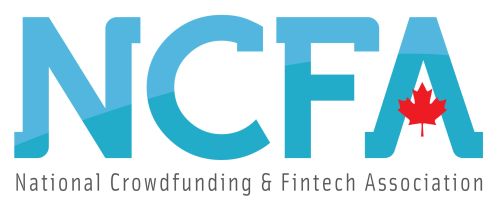Regulation and Competition | Sep 11, 2023

 Image: Unsplash/Rahul Chakraborty
Image: Unsplash/Rahul ChakrabortyThe article titled “Report Highlights Role of Big Tech Firms in Mobile Payments” from the Consumer Financial Protection Bureau (CFPB) discusses the influence of Big Tech companies on mobile payments, particularly tap-to-pay functionalities on mobile devices.
The Problem: Tap-to-Pay and Big Tech
Tap-to-pay usage in the U.S. has seen substantial growth, nearing an estimated $300 billion across Apple Pay, Samsung Pay, and Google Pay. It’s predicted that digital wallet tap-to-pay transactions will grow by over 150% by 2028.
Apple and google are dominant in U.S. mobile: As of the second quarter of 2023, Apple’s iOS was on 55% of smartphones shipped in the U.S., while Google’s Android was on 45%.
See: Policy Blind Spot: The Interdependencies of Big Tech and Their Foothold in Financial Services
Regulating access: Apple’s iOS devices do not allow third-party payment apps to access NFC technology, making Apple Pay the only option for tap-to-pay on iOS devices. Google’s Android, on the other hand, does not restrict third-party payment apps from accessing the NFC chip, but this could change.
Restrictions on tap-to-pay can limit consumer choice and hinder the move towards a more open banking ecosystem. For instance, Apple’s NFC policy does not allow direct integration of tap-to-pay into existing banking apps and other payment apps like PayPal, Venmo, and Cash App.
CFPB Efforts
The spotlight is part of CFPB’s broader initiative to monitor the transition to open banking in the U.S., including trends in consumer payments and the introduction of multi-service super apps.
See: ISED Launches Competition Act Review: Consultation on the Future of Competition Policy in Canada
The CFPB is working on a rulemaking required by Section 1033 of the Consumer Financial Protection Act to clarify consumers’ personal financial data rights. This could speed up the shift towards open banking in the U.S., emphasizing interoperability across consumer financial products and services.
Striking A Balance and Competitive Landscape
The evolving landscape of mobile payments, driven by the policies and practices of tech giants like Apple and Google, underscores the intricate balance between innovation, consumer choice, and market dominance. As tap-to-pay transactions surge in popularity, the regulations set by these leading mobile operating systems play a pivotal role in shaping the future of retail payments.
Read: Canada’s Competition Problem: 7 Reasons
While these regulations can offer streamlined and secure payment solutions, they also raise concerns about reduced consumer choice and potential stifling of innovation. It’s imperative for stakeholders, from policymakers to consumers, to stay informed and engaged in this rapidly changing domain to ensure a fair and competitive mobile payments ecosystem.
FAQ
1. How might the restrictions imposed by Apple on tap-to-pay functionality impact the competitive landscape of mobile payments?
Answer: Apple’s restrictions on tap-to-pay functionality, particularly its decision to limit access to NFC technology to only Apple Pay on iOS devices, can create a competitive advantage for Apple Pay in the mobile payments market. Given that Apple’s iOS holds a significant market share, this can lead to reduced choices for consumers who use iOS devices. Additionally, third-party payment apps and banks might find it challenging to compete on an even playing field, potentially stifling innovation and competition in the mobile payments sector.
See: Monopoly-Friendly Canada ‘Does Not Treat Competition Policy Seriously’
2. How does the growth of tap-to-pay transactions correlate with the increasing dominance of mobile operating systems like iOS and Android in the U.S.?
Answer: The dominant market shares of iOS and Android, combined with the rapid growth of tap-to-pay transactions, highlight the pivotal role these operating systems play in shaping the retail payments landscape. As more consumers adopt smartphones with these operating systems, the policies and practices set by Apple and Google directly influence how consumers make payments. The increasing shift towards mobile device payments underscores the importance of their policies, especially as they can either promote or hinder the adoption of tap-to-pay solutions, impacting consumer behavior and the overall growth trajectory of the mobile payments industry.

 The National Crowdfunding & Fintech Association (NCFA Canada) is a financial innovation ecosystem that provides education, market intelligence, industry stewardship, networking and funding opportunities and services to thousands of community members and works closely with industry, government, partners and affiliates to create a vibrant and innovative fintech and funding industry in Canada. Decentralized and distributed, NCFA is engaged with global stakeholders and helps incubate projects and investment in fintech, alternative finance, crowdfunding, peer-to-peer finance, payments, digital assets and tokens, artificial intelligence, blockchain, cryptocurrency, regtech, and insurtech sectors. Join Canada’s Fintech & Funding Community today FREE! Or become a contributing member and get perks. For more information, please visit: www.ncfacanada.org
The National Crowdfunding & Fintech Association (NCFA Canada) is a financial innovation ecosystem that provides education, market intelligence, industry stewardship, networking and funding opportunities and services to thousands of community members and works closely with industry, government, partners and affiliates to create a vibrant and innovative fintech and funding industry in Canada. Decentralized and distributed, NCFA is engaged with global stakeholders and helps incubate projects and investment in fintech, alternative finance, crowdfunding, peer-to-peer finance, payments, digital assets and tokens, artificial intelligence, blockchain, cryptocurrency, regtech, and insurtech sectors. Join Canada’s Fintech & Funding Community today FREE! Or become a contributing member and get perks. For more information, please visit: www.ncfacanada.org
Related Posts
- SEO Powered Content & PR Distribution. Get Amplified Today.
- PlatoData.Network Vertical Generative Ai. Empower Yourself. Access Here.
- PlatoAiStream. Web3 Intelligence. Knowledge Amplified. Access Here.
- PlatoESG. Automotive / EVs, Carbon, CleanTech, Energy, Environment, Solar, Waste Management. Access Here.
- PlatoHealth. Biotech and Clinical Trials Intelligence. Access Here.
- ChartPrime. Elevate your Trading Game with ChartPrime. Access Here.
- BlockOffsets. Modernizing Environmental Offset Ownership. Access Here.
- Source: https://ncfacanada.org/tap-to-pay-transactions-and-big-tech-dominance-is-a-thorn-for-cfpb/



